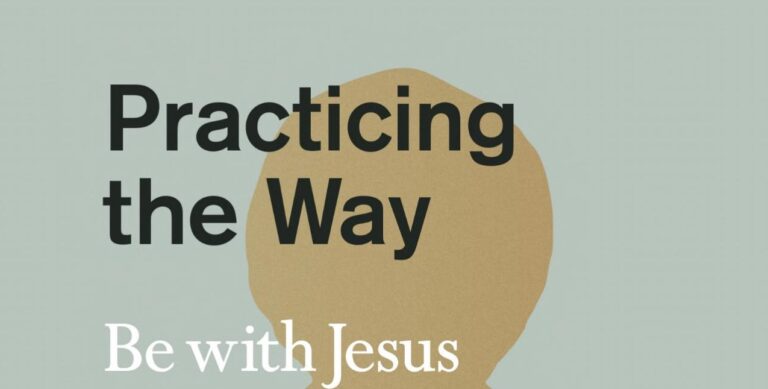Over the last few years, I have noticed that there are two “gateway doubts” that often lead to people walking away from the Christian faith. There are doubts about the biblical teaching on sexuality and gender. There are also doubts about the biblical teaching on hell.
In this article, let’s think a bit about doubting hell.
The Doubt
Simply put, the doctrine of hell seems wrong and unloving. If biblical Christianity teaches hell, then it either needs to be improved by removing hell, or rejected for teaching hell.
The problem for Christians
The Bible does teach that hell is real and God will judge all of the living and the dead. I know this might not seem like a helpful point if you are having doubts. But it is helpful because honesty and clarity are helpful; fudging, obscuring and lying are not helpful. If I downplay hell and talk as if it is not really in the Bible and I convince you – well you might be happy for a while, but then if you read your Bible regularly, and read through all of the Bible (which is very wise to do), then you will keep coming across judgment and hell texts.
Your doubts return, and the “helper” is now revealed as a deceiver. By the way, I will not give you all of the hell and judgment texts, there are far too many, but I recently wrote an article on hell and the lake of fire which will give you all of the verses for that one slice of the bigger topic of hell and the judgment of the Triune God.
Where faithful Christians agree with doubters and deniers
You are right to think that the true God, if He does exist, must be a God of love and that Hell is horrible to contemplate. Your intuition in this regard is bang on, and true Christians should agree. No Christian should ever talk of hell with glee, or appear to delight in the fact that some will end up there. It is horrible.
The Bible clearly teaches that the Triune God is a God of love. In fact, no religion or system of thought provides as thick and deep an account of why God is a God of love, and how you know that He is love. In the first case, the Trinity reveals how God can love and be love for all eternity. In the second case, the cross reveals God’s great love for fallen humanity: “For God so loved the world that He gave His only Son that whoever believes in Him should not perish but have eternal life” (John 3:16 ESV).
But you see the problem?
Even in this great text about God’s love for us in the death of Jesus, there is that word “perish.”
The doubting journey has (at least two) problems
The most common objection to Christianity by non-Christians is the problem of evil. Simply put, the problem is that Christians claim God is good and loving. But God allows evil acts to go unpunished and unstopped. Do you see the problem for the doubting journey?
There are lots that Christians can say about the problem of suffering, but one of the things they can say is that at the end of the day, all evil-doing and evil-doers are stopped and punished. God judges. Hell is that “stopping” and punishing. So to the doubter, you cannot have it both ways. How can you be unhappy with biblical Christianity because God judges, without making the case for the non-existence of the biblical God because He does not judge? Is it wrong that He judges or is it wrong that He does not judge?
But the niggling concern that love shows a different way reveals the second major problem with the doubting journey. Love is the problem. If on the day after you got married, you discovered that the reason your spouse married you is because your Dad secretly promised them $10 million dollars if they married you – you would be devastated and repulsed and would not want to stay married to the person.
They did not marry you because they loved you, but were compelled to marry. Love must be freely and honestly chosen. If God is love, and in love He desires to be with you for all eternity, but a person does not want to be in His presence, resenting His presence as “stalking” and a “violation,” what is God to do?
If you say, well, God needs to act in such a way that no one rejects Him, isn’t that the same compulsion you reject because it is the opposite of love? Wouldn’t the “compelled/forced” person resent having no choice in loving God?
If you knew that after death God would erase your memory and will so you will go to Heaven and love Him, wouldn’t you hate Him now, in advance? And how can God claim He is love, if a significant number of people in Heaven have been reduced to His puppets by His power?
If God is love, He cannot force you to love Him; and if you are truly free, you can freely reject Him and find His presence hurtful and offensive. Hell is many things, but one of the things is this — if God will one day bring in the new heaven and earth where He will be fully present to people, then hell is the place where you experience the inescapable presence of the loving God as a deep pain and a violence that burns.
Please reconsider the wisdom and beauty of Biblical teaching
Only the biblical gospel and biblical teaching truly and deeply ground your Intuitions about the importance of goodness, beauty, love, and freedom. The doctrine of the Trinity shows how such intuitions are rooted in the eternal life of God Himself. The doctrine of creation, where you are made in His image, grounds why you have such intuitions and yearnings. The doctrine of the Fall explains the presence of evil, the presence of goodness, and the perennial frustration you feel to live well.
The promise of the Gospel is the only hope that God’s justice and His love and mercy are not compromised, but that He and only He can do for you what you can never do for yourself. This same gospel undermines your pride and all delusions that you can stand under His judgment on your own merit, offering a rescue and a healing of you down to your depths so you can one day stand in the presence of love and find joy and rest.
Isn’t pride and presumption an enemy of love? Apart from Christ’s gift of life-transforming grace is resentment of God. Inside His grace, and only because of that grace, on that final day, I will renounce the human anthem “I did it MY way,” and sing, “Free at last, free at last, praise God almighty, I am free at last!”
























